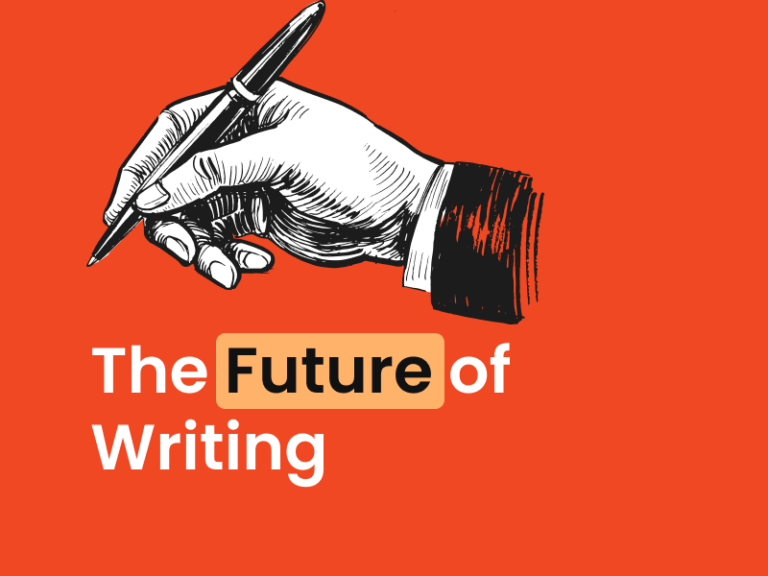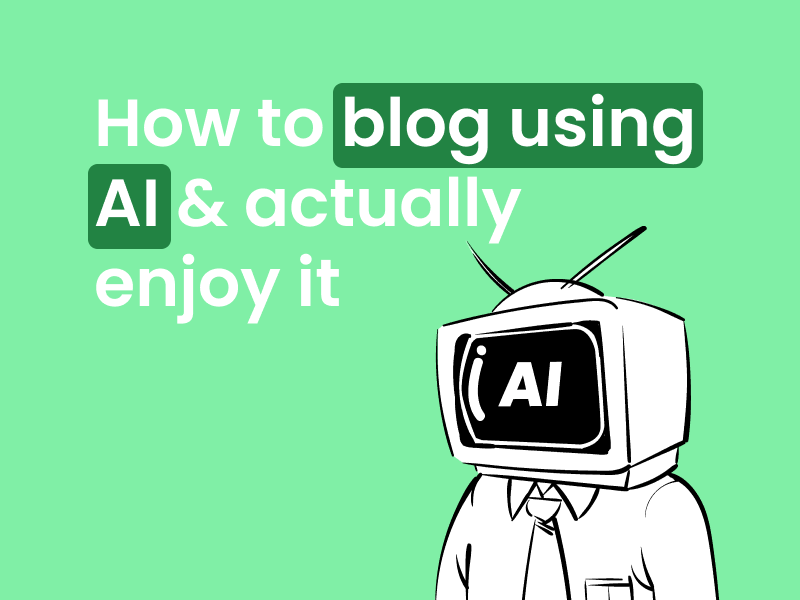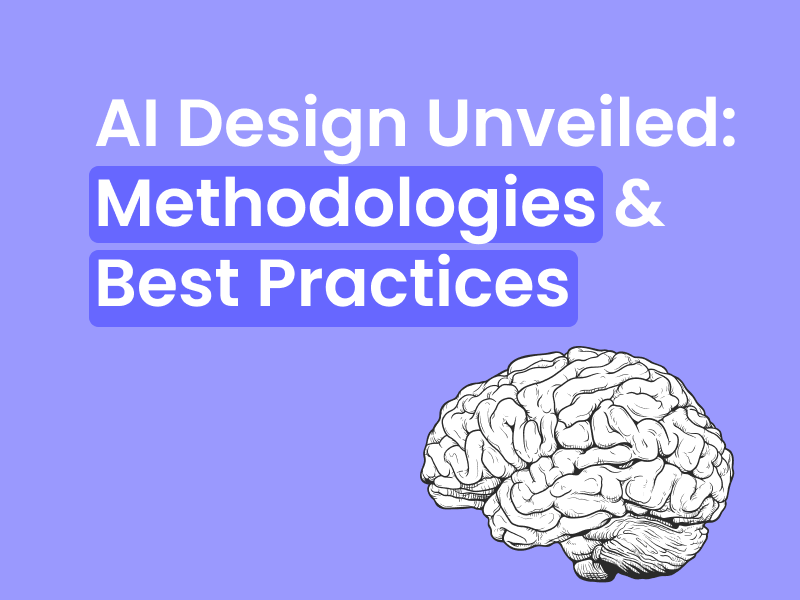The future of writing: Will AI writers take over or will human authors adapt and thrive?

By Gareth Henry | Last Updated 19 May 2023
PREFACE: A CASE STUDY - IS ARTIFICIAL INTELLIGENCE WRITING THAT GOOD?
As a writer of over 1000 SEO articles, I have been obsessed with AI writing and its potential impact on the future of writing for quite a while now.
As a digital marketing company, we have used AI writing heavily during the past two years, from providing white-label SEO product descriptions for large Australian e-commerce businesses to simple food blog drafts and ideation for our clients.
AI writing has been gaining popularity in recent years, and many people wonder if it will eventually take over the writing industry, including me. I'm wondering if I'm replacing myself and will no longer get to use both my tech expertise and the joy of writing. So, I'm approaching this article with trepidation.
In this article, I will explore my major conclusion on the state of AI writers when using generative AI in a sort of comparison case study. I've got one pure GPT-4 output with some smart prompting, then below that I have an example the GPT-3.5 output I've edited for approximately an hour.
And tell you what, I will leave it up to you which is better, but personally GPT-4 is the clear winner in my books. More succinct, better examples, higher degree of polish.
Pure GPT-4 Output
The Future of Writing: AI Writers vs. Human Authors – Who Will Thrive?
As the world embraces artificial intelligence (AI) with open arms, the domain of writing has also begun to feel the ripples of AI's influence. Drawing from my experience as a writer and AI researcher with a background in computer tech blogging and creative writing tropes, I invite you to explore the intricate dance between AI and the future of writing.
Will AI-generated content overshadow human authors, leaving them grappling to adapt? Or will human ingenuity and adaptability triumph over the algorithms? Let's take a closer look at the evolving relationship between AI and the writing landscape.
A New Algorithm in Town: The Rise of AI Writers
Imagine a virtual Shakespeare or Hemingway, tirelessly churning out content at a breakneck pace. AI-powered writing tools, such as OpenAI's GPT series, are making this concept a reality. These algorithms generate coherent text by understanding and predicting language structure. AI writers can produce blog posts, articles, and even poetry with minimal human input.
The capacity of AI to generate content quickly and at scale offers undeniable advantages. For instance, AI can help journalists cover breaking news more promptly or assist researchers in summarizing extensive amounts of data. However, AI-generated content often lacks the depth, context, and creativity that human writers bring to their work, making it less engaging and less likely to resonate with readers on a deeper level. This rapid progress prompts legitimate concerns: Will human writers become obsolete in the face of AI?
The Pen vs. The Processor: Creativity and Adaptability
While AI writers are akin to powerful processors churning out coherent text, they still lack the soul and spark that define exceptional writing. Human authors have the edge of personal experiences, emotions, and unique perspectives that shape their work. Additionally, they possess the ability to think critically, engage with intricate ideas, and make creative leaps that AI has yet to achieve.
Picture the realm of investigative journalism that exposes corruption or abuse of power. The empathy, persistence, and human connections that go into such writing are challenging for AI to replicate. Human authors continue to excel in creating nuanced, emotionally charged, and thought-provoking works that resonate with readers.
Adapting to the AI Revolution: Collaboration, Specialization, and Learning
Human writers need to embrace the changing tides and navigate the new algorithms of their craft. One strategy is to use AI as a tool to enhance their writing. For instance, AI can help authors optimize their writing process by providing suggestions, pinpointing weak areas, or even generating drafts. This cooperative relationship allows writers to concentrate on refining their unique voice and bringing their ideas to life.
Another approach is specialization. Human authors can focus on niche topics or genres where their expertise and creativity are indispensable. They can also emphasize the human touch in their writing, engaging readers with empathy, humor, or relatability – elements that AI may struggle to authentically replicate.
To stay ahead of the curve, human authors should invest time in understanding AI technologies and their applications in the field of writing. Staying informed about the latest developments can help writers harness AI's potential and adapt more effectively.
A Balanced Future: Embracing the Best of Both Worlds
In conclusion, the future of writing does not solely depend on AI writers or human authors, but on the harmony between them. By embracing the strengths of AI while utilizing human creativity and adaptability, the world of writing can continue to prosper. However, it is important to address the challenges associated with the integration of AI in the writing industry, such as potential job displacement and ethical concerns around AI-generated content, to ensure a balanced and responsible approach to the future of writing. By overcoming our AI apprehension and focusing on a collaborative approach, we can ensure that the art of writing remains a diverse and vibrant landscape for future generations.
As we traverse the ever-evolving world of AI and writing, it is essential to recognize that the dance between AI writers and human authors is a delicate balance of strengths and weaknesses. The key to maintaining this equilibrium lies in our ability to adapt, learn, and collaborate. By acknowledging the unique contributions of both AI and human writers, we can work together to create a future where the written word continues to inspire, inform, and provoke thought. So, let's embrace this dynamic partnership, leveraging the power of AI to augment our own creativity, and ensuring that the rich tapestry of human expression remains an integral part of our collective story.
PURE GPT-T 3.5 OUTPUT + 1.5 hours editing:
If you didn't already know, what is AI writing?
AI writing uses artificial intelligence to write content, including articles, essays, stories, and even novels. The technology uses natural language processing (NLP) to analyse data, learn from it, and generate new content using prescribed statistical rules called 'weights'. Every word, or part of a 'token' produced, is generated based on previous tokens. With the current technology, there is no actual overview of the article in real-time as it's generated. For this to happen, you have to re-prompt the program.
AI writing has become increasingly popular recently, with many companies and freelancers offering AI writing tools and services. Up until ChatGPT 3.5, however, the output was pretty rough and simplistic.
Advantages and disadvantages of using AI writers
One of the main advantages of AI writing is its speed. AI writers can produce content much faster than human writers, and they can work around the clock without getting tired. With current technology, you can ask an AI to create draft content and analyse itself, add variations and tones, which can finally be overviewed and edited by a human expert, which leads us to AI writers' next significant advantage: Scope.
AI writers can analyse data and generate many more insights than human writers who have limited time and energy. Your AI article, fully edited, will contain much more depth than otherwise possible.
The potential writing solutions are now close to infinite, whereas before, you were limited by your knowledge, mindset and expertise.
However, there are also disadvantages to using AI writers. One major issue is the lack of creativity and originality in the content produced by AI writers. AI writers rely on data and patterns to generate content, which can result in generic and formulaic writing time and time again.
Additionally, AI writers may be unable to capture the nuances and emotions that human writers can convey. AI is simply repurposing patterns, and if the data it has been trained on is a bit dry or formulaic, then the AI's mimicry will also be relatively boring to read.
Another disadvantage is the potential for errors and inaccuracies in the content produced by AI writers, known as hallucinations. AI writers rely on algorithms and data, which may not always be accurate or up-to-date, or the AI's training misunderstands the data. This can lead to subtle mistakes and misinformation in the content produced by AI writers. If the human editor is not an expert or careless, these mistakes will appear in the final written product.
Thus, we have slight misunderstandings, a Chinese whispers at play in our corpus of work, especially on niche topics, that will crop up when overusing AI.
The possible disruption of AI writers in society
While AI writing may have some advantages, it also has the potential to disrupt society. One primary concern is AI writers' impact on jobs in the writing industry. If AI writers become widespread, it could lead to job and income losses for human writers, previously considered a lucrative employment option. So, for example, the Screen Writers Guild is going on strike.
Another concern is the potential for AI writers to be used for malicious purposes, such as spreading misinformation or propaganda. For example, AI writers could be used to generate fake news or manipulate public opinion, which could have severe consequences for society.
Lastly, AI writers will soon outpace what humans produce; thus, all content will be assumed to be considered AI written even if written by humans. For example, all articles that rank high on Google's search engine results page. This will harm both the authors' motivation to write and the readers' experience of having this mindset.
AI Writing studies - How much better is it?
While AI writing has advantages, it is essential to consider how it compares to human writing. According to a study by OpenAI, a leading AI research organisation, AI writers can sometimes match the quality of human writing. However, the study also found that AI writers still struggle with tasks considered easy for human writers, such as writing coherent and engaging stories.
Another study by the University of Copenhagen found that AI writers could produce content that was more concise and to the point than human writers. However, the study also found that AI writers needed help with generating content that was engaging and enjoyable to read.
The future of AI writing tech
The future of AI writing tech is undoubtedly exciting and disruptive, with many new developments and advancements on the horizon.
One area of focus is improving the creativity and originality of AI writing. As a result, there is an intense focus now by researchers to work on developing neural networks that can generate more unique and exciting content.
Another area of focus is improving the ability of AI writers to understand and use language more naturally than NLP does at present. This could lead to more engaging and authentic-sounding content to start with.
How AI writing can add value to society
While there are concerns about the impact of AI writing on society, there are also ways in which it can add value. For example, AI writers could be used to generate content that is more accessible to people with disabilities. AI writers could also be used to create content in multiple languages, making information more widely available worldwide.
AI writers could also be used to generate more accurate and informative content. By analysing large amounts of data, AI writers could help identify patterns and insights that human writers may be unable to see.
AI essay writers - Current benefits and limitations
One area where AI writing has become particularly popular is in the field of essay writing.
AI essay writers can generate essays on various topics in minutes. This can be helpful for students who need to write essays quickly or need help with writing.
However, there are also limitations to using AI essay writers. For example, AI essay writers may need help with more complex topics or writing requiring high creativity.
Additionally, there is a risk of plagiarism when using AI essay writers, as the content generated may be similar to content generated by other users.
Choosing an AI writing generator
If you are interested in using AI writing for your content generation needs, choosing the right AI writing generator is essential. Many options are available, each with its own strengths and weaknesses.
Some popular AI writing generators include ChatGPT 3.5 and 4, ChatSonic, and Jasper. Each of these tools has unique features and capabilities, so it is essential to research websites like this and choose the tool that best meets your needs.
AI writing and possible plagiarism and intellectual property issues
One concern with AI writing is the potential for plagiarism and intellectual property (IP) issues. Since AI writers rely on data and patterns to generate content, there is a risk that the content generated may be similar to content generated by other users.
Additionally, there is a risk that AI writers may inadvertently infringe on existing IP rights. For example, an AI writer may generate content similar to a copyrighted work without realising it.
Lastly, the fact there is no 'opt out' for websites that have had their data trained on has led to bans in Italy and possibly lawsuits from large media providers like Reddit.
It is hard to predict what legal disruption will come into effect. Likely, the cat is out of the bag, and trying to protect your content sufficiently to stop most plagiarism or halt AI writer progress will be like stopping a river with a paddle. It may be possible here or there, but the cost of proving plagiarism sufficiently to a court will be a losing proposition.
Lessons from the success of human writers to this point that will help human writing stay relevant into the future
As AI writing continues to evolve, it is crucial to consider the lessons that can be learned from the adaptation and evolution of human writers. Human writers have adapted and changed for centuries, and much can be learned from their experiences.
One lesson is the importance of creativity and originality in writing. Human writers have always valued these qualities and should continue to do so in the age of AI writing. As long as one pursues writing mastery, then there will undoubtedly be an exceptional place for human writing.
Another lesson is the importance of understanding and using language naturally and authentically, which AI may have issues mimicking. Human writers have always strived to create content that is engaging and relevant to their personalised audience, and this should continue to be a priority in the age of AI writing.
Final thoughts
In conclusion, the future of writing is in flux, with many new developments and advancements on the horizon. Therefore, while AI writing may have advantages, disadvantages and concerns should be considered.
Ultimately, the role of human writers in the age of AI writing will still be crucial for the foreseeable future. Human writers bring a level of creativity, originality, and emotion to their writing that AI writers may not be able to replicate. As AI sets a particular bar, humans will naturally adapt to exceed this standard by a wide margin.
As AI writing continues to evolve, the author of the AI writing needs to consider how it can be used to add value to society while preserving the importance and talents of human writers.
To disregard the impact of human written thought in a cavalier fashion, we open ourselves to a societal conversation devoid of meaning or purpose. Ultimately, those that properly consider society's greater needs will likely create a lasting impact, and those that take advantage without empathy will wonder why their technology or effects is limited. Also, a human-centric platform that successfully pivots to account for AI-spun spam content will likely be the future of media.
Submit An App
Seen a cool app you think we should review? Submit your recommendation using our form.


